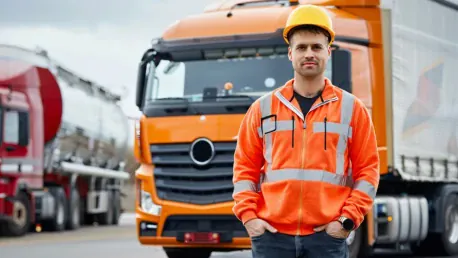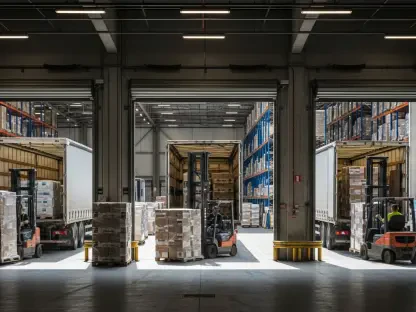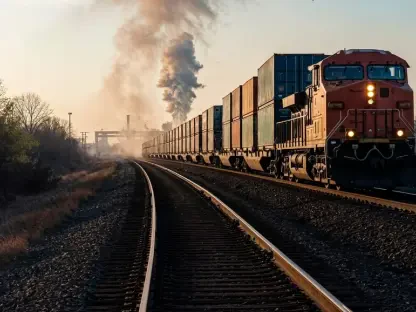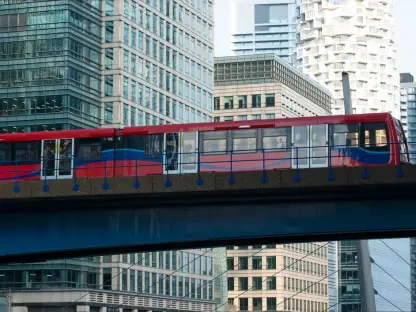As the landscape for truckers and logistics companies continues to evolve, 2025 will bring significant changes aimed at enhancing safety and compliance. These measures will benefit not only the drivers but also the companies involved in goods transportation and those that insure them. A major development on the horizon is the mandatory implementation of safety and security declarations for imported goods, which is expected to reshape the industry significantly. Moreover, substantial investments in truck stops across England promise to drastically improve amenities, security, and overall conditions for truckers.
A Vital Investment in Truck Stops
Enhanced Facilities Drive Safer Rest Periods
The Department of Transport’s significant investment of £43 million for upgrading truck stops across England is more than just a financial commitment. It’s a pledge to transform the daily lives of truck drivers, offering them safer and more comfortable environments during their mandatory rest periods. Enhanced facilities such as improved restaurants, modernized showers, and increased secure parking bays are all part of this initiative. Such upgrades aim to create a more inviting atmosphere for drivers, ensuring that their downtime is restful and secure.
Securing these rest areas also plays a crucial role in tackling theft, which currently costs the industry an estimated £500 million annually. By offering secure and well-monitored areas for truckers to park, the instances of cargo theft are expected to significantly decrease. This will, in turn, reduce the financial strain on companies due to lost goods and lower insurance claims. Moreover, these upgraded facilities are projected to enhance the overall well-being and satisfaction of drivers, leading to better job retention rates and improved operational efficiency for trucking companies.
Infrastructure and Technology Integration
Beyond merely enhancing comfort, the investment is also set to drive technological improvements within truck stops. Security fencing and advanced surveillance systems will be incorporated to ensure that rest areas are well-guarded against potential criminal activities. The integration of such technology is vital in providing a secure environment where drivers can rest without concerns about the safety of their vehicles or cargo. Advanced monitoring systems will offer real-time alerts, significantly improving the response time in case of any security breaches.
Additionally, investing in modern infrastructure, such as well-paved parking bays and spacious parking lots, addresses another critical need. Overcrowded and poorly maintained resting areas have long been a concern for truckers. By revamping these facilities, the department aims to provide ample space and a stress-free parking experience. Such improvements are likely to also encourage compliance with regulations requiring drivers to take regular breaks, further enhancing road safety and reducing the risk of accidents caused by fatigue.
Regulatory Changes in a Post-Brexit World
Mandatory Safety and Security Declarations
Starting 31 January 2025, all goods imported from the EU into Great Britain will require a Safety and Security declaration. This additional layer of paperwork is emblematic of the post-Brexit regulatory landscape, where ensuring stringent compliance is crucial. The carrier, predominantly the haulier, will bear the responsibility for filing these declarations when goods enter Great Britain by truck. This regulation introduces a new operational requirement that companies need to swiftly adapt to, demanding precise coordination and comprehensive understanding of the compliance landscape.
In scenarios where goods are transported via ferry with unaccompanied trailers, the responsibility for filing the declaration lies with the ferry carrier. This introduces additional challenges in terms of clarity and accountability. Carriers will need to ensure that they have accurate systems in place to track and manage these declarations, avoiding discrepancies that could lead to delays, penalties, or other operational hiccups. The logistics industry may face initial hurdles during this transition, but these regulatory measures are designed to streamline and secure the import process in the long run.
Third-Party Filing and Legal Responsibilities
To manage these new requirements, carriers are allowed to delegate the filing of Safety and Security declarations to third parties. However, this delegation comes with its complexities. Contracts must explicitly outline that such authorization has been granted, clearly detailing the terms and conditions. Despite this delegation, the carrier remains legally responsible for the declarations. Errors or omissions by third-party filers could still incur liabilities for the carrier, making it imperative for companies to choose reliable partners and establish robust contracts.
Hauliers must also reassess their insurance policies in light of these new regulations. The failure to file necessary declarations could lead to fines, delays, and potential claims, all of which must be covered under comprehensive policies. Ensuring that insurance policies adequately cover these scenarios is crucial for mitigating financial risks. As the industry prepares for these changes, companies will need to focus on training, compliance audits, and robust internal systems to manage the additional requirements effectively, ensuring seamless operations despite increased regulatory scrutiny.
Big Changes on the Horizon
Emphasis on Coordination and Transparency
The forthcoming changes underscore the critical importance of coordination and transparency across the logistics industry. The new requirements for Safety and Security declarations necessitate meticulous planning and an unwavering focus on compliance. Ensuring every link in the supply chain is aware of and adheres to these new regulations will be a formidable but necessary task. Companies will need to invest in training programs to equip their staff with up-to-date knowledge on filing procedures, compliance requirements, and potential legal implications.
Moreover, transparency within the supply chain will emerge as a defining factor for success. Open communication channels among carriers, third-party service providers, and regulatory bodies will facilitate a smoother transition and help preempt potential issues. Businesses are likely to adopt cutting-edge logistics software and tracking systems to maintain real-time visibility into their cargo movements, ensuring documentation and declarations are always up to date and accurate. This level of oversight will be crucial in preventing bottlenecks or delays that could arise from administrative inaccuracies or non-compliance.
Industry-Wide Benefits and Forward Steps
As the trucking and logistics industry continues to change, 2025 is set to bring significant advancements aimed at boosting safety and compliance standards. These new measures will not only benefit the truck drivers but also the logistics companies and insurers involved in the transportation of goods. One major upcoming development is the mandatory implementation of safety and security declarations for imported goods. This change is expected to transform the industry dramatically by ensuring higher levels of accountability and security. Additionally, there will be significant investments in upgrading truck stops across England, which will greatly enhance amenities, security, and overall conditions for truckers. These improvements are designed to provide better rest and recreational facilities, thus improving the quality of life for drivers. As a result, the entire logistics sector is likely to see advancements that enhance safety, streamline compliance, and support drivers’ well-being, marking a new era of efficiency and care in trucking.









